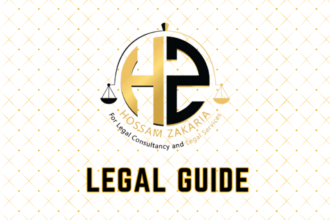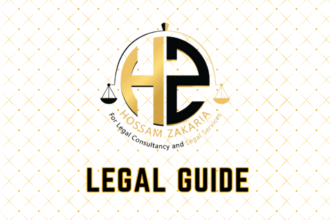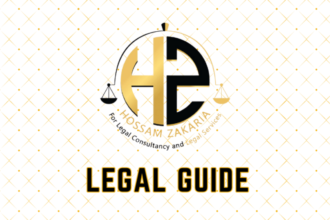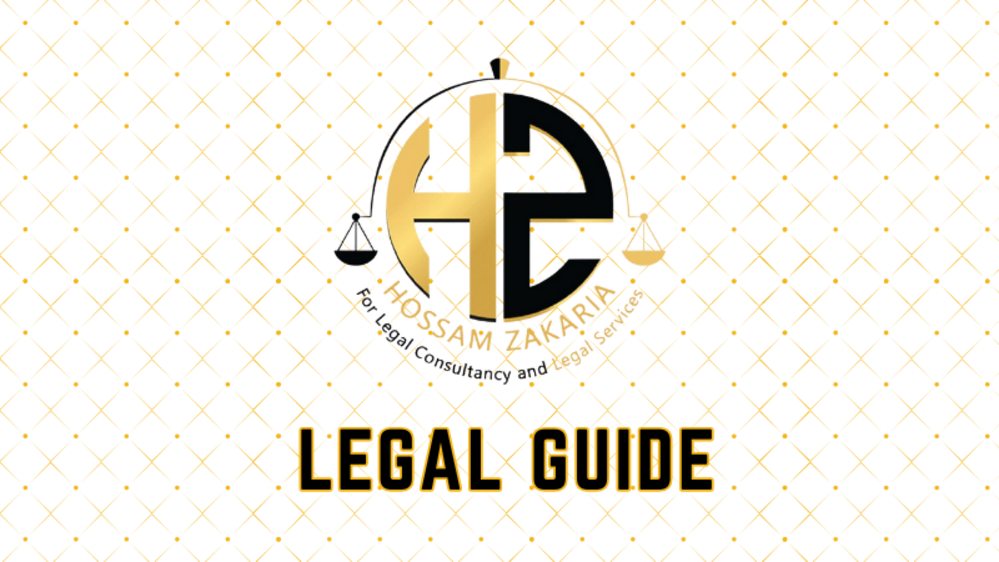Expert Analysis of Qatar Aviation Security Laws and Anti-Terrorism Measures for UAE Businesses
The GCC’s dynamic economic landscape, marked by seamless regional travel and cross-border business, has pushed aviation security and anti-terrorism compliance into the spotlight. Following significant legal updates across Qatar and the wider GCC, UAE-based businesses with operations, investments, or workforce mobility linked to Qatar must understand aviation security statutes and anti-terrorism laws to ensure robust legal compliance and risk mitigation.
This article offers a deep dive into the regulatory framework governing Qatar aviation security and counter-terrorism, and provides actionable legal insights for UAE firms. Drawing on trusted regional legal sources, our analysis covers recent legislative updates, comparative legal tables, risk scenarios, illustrative case studies, and essential compliance strategies for HR leaders, GRC professionals, and legal advisors overseeing UAE-Qatar operations.
Why This Analysis Matters to UAE Businesses in 2025 and Beyond
As both Qatar and the UAE intensify their anti-terrorism efforts and aviation security measures, transnational compliance is now critical. With Federal Decree-Law No. 31 of 2021 (UAE Penal Code), Cabinet Decision No. 29 of 2022 regarding aviation security, and the latest Qatari Law No. 17 of 2022 on Combating Terrorism, organizations must adapt rapidly to update their internal policies, due diligence, and risk management frameworks to avoid severe penalties and reputational harm.
A failure to do so can invite heavy fines, travel disruptions, criminal prosecution, and cross-border enforcement. This advisory aims to empower legal teams and C-suites to proactively manage emerging obligations, especially as GCC states harmonize their aviation security and counter-terror regimes and enhance bilateral enforcement.
Table of Contents
- Understanding Qatari Aviation Security Law: Foundations and Objectives
- Key Provisions in Qatar’s New Aviation Security and Anti-Terrorism Regulations
- Comparative Table: UAE and Qatar Aviation Security Laws
- Practical Guidance for UAE Businesses Engaged in Qatar
- Penalties and Risks of Non-Compliance
- Case Studies and Hypothetical Scenarios
- Statutory Compliance Tools and Strategies for UAE Operations
- Future Trends and Best Practice Recommendations
Understanding Qatari Aviation Security Law: Foundations and Objectives
The Qatari Legislative Context
Qatar has long positioned itself as a regional aviation hub, necessitating stringent legislative frameworks to safeguard both civil aviation and public interests. The primary statutes governing this include:
- The Civil Aviation Law No. 15 of 2002 (amended by Law No. 9 of 2021)
- Qatari Law No. 17 of 2022 on Combating Terrorism
- Civil Aviation Authority Regulation QCAR Part 155 – Aviation Security
These laws are complemented by executive decisions and ministerial circulars following the International Civil Aviation Organization (ICAO) standards. The focus is two-fold: (a) Preventing acts of unlawful interference in aviation, and (b) Combating terrorism across all air transport platforms.
Statutory Objectives:
- Protect airlines, passengers, and cargo from acts of terrorism or sabotage
- Ensure compliance with global aviation security benchmarks (especially ICAO Annex 17)
- Strengthen border and immigration controls at airports, focusing on intelligence sharing and passenger vetting
- Mandate robust preventive measures and rapid response protocols for aviation-related companies
Key Agencies and Enforcement
The Qatari Civil Aviation Authority (QCAA), in coordination with the Ministry of Interior and State Security Bureau, oversees enforcement. All entities operating within or in connection with Qatari airspace or airports—foreign airlines, ground handling providers, logistics firms, and multinational employers—are within scope.
Key Provisions in Qatar’s New Aviation Security and Anti-Terrorism Regulations
1. Mandatory Security Programs
Under QCAR Part 155 and related ministerial directives, operators must develop, implement, and update security programs tailored to their risk exposure, with annual compliance certifications necessary for operating licenses. Requirements include:
- Regular vulnerability assessments for all operations and premises
- Security vetting of all staff with airside access
- Deployment of biometric and surveillance technologies
- Mandatory employee training (with documented curricula and testing)
UAE Impact: UAE-headquartered airlines, GSA agents, and MRO providers working in Qatar must audit their existing protocols, often aligning with more stringent Qatari rules than those prevailing elsewhere in the GCC.
2. Advanced Passenger Information (API) and PNR Sharing
Passenger and freight operators are obligated to submit Advance Passenger Information (API) and Passenger Name Records (PNR) to Qatari authorities before all arrivals and departures. QCAAR Circular 2022/11 introduced considerably shorter turnaround times and expanded data categories, aligning with global counter-terror financing initiatives.
3. Counter-Terrorism Offenses: Legal Definitions and Application
Qatari Law No. 17 of 2022 provides broad definitions of terrorism that extend into suspected intent, providing or facilitating financing, or even indirect association. For multinational businesses, this expands legal exposure. Key offenses include:
- Organizing or participating in any act intending to intimidate or coerce an air transport service
- Providing, collecting, or holding funds or assets with the knowledge that they may be used for terrorist acts (even without direct evidence such assets are used as such)
- Failure of a corporate officer to prevent non-compliance by subordinates when reasonably possible
Compliance Alert: UAE nationals or residents working for affiliates or joint ventures in Qatar—including remote or digital employees—are directly accountable under this statute and are not shielded by their UAE citizenship.
4. Proactive Compliance Measures
Operators must continuously update threat assessments, foster staff whistleblowing and reporting, and maintain transparent records for audits—procedures audited biannually by QCAA or upon specific suspicion.
5. Cross-Border Cooperation and Enforcement
Qatari statutes now emphasize bilateral cooperation, especially with close GCC neighbors. UAE businesses must be attentive to Memoranda of Understanding (MoUs) such as the 2023 Qatar-UAE Security Cooperation Agreement, streamlining extradition, mutual legal assistance, and information exchange, which increases liability exposure in cross-border matters.
Comparative Table: UAE and Qatar Aviation Security Laws
| Aspect | UAE Law (as of 2025) | Qatar Law (as of 2022) | Consultancy Insight |
|---|---|---|---|
| Primary Regulation | Cabinet Decision No. 29/2022; Federal Decree-Law No. 31/2021 | Law No. 15/2002 (amended), Law No. 17/2022 | Both jurisdictions align with ICAO but differ in enforcement stringency for indirect entities. |
| API/PNR Sharing | Required with up to 12 hours advanced submission | Required, now 6-hour minimum; more categories of data | Qatar enforcement is currently stricter. UAE entities must prepare for harmonization or opt for the higher standard regionally. |
| Terrorism Offenses Scope | Narrower; requires proof of direct intent or support (see FDL No. 31/2021, Articles 53-58) | Broader; includes ‘preparatory acts’, suspected financing, or indirect facilitation | Qatar’s approach increases compliance burdens for regional HR screening and transaction monitoring. |
| Corporate Liability | Corporations liable for employee acts only if complicit or grossly negligent | Corporations liable unless proactive compliance is demonstrated | Shift to ‘reverse burden’ in Qatar; requires extensive staff and supplier training. |
| Enforcement Mechanisms | Centralized through GCAA and Ministry of Interior | Cross-agency taskforces under QCAA | Qatar’s multi-agency reviews can lead to overlapping audits. |
| Fines & Sanctions | Up to AED 10 million, criminal sanctions, travel bans | Up to QAR 20 million, imprisonment up to life for severe breaches | Both regimes have escalated penalties since 2022 updates; harmonization is ongoing. |
Visual suggestion: A process flow diagram illustrating the compliance process for UAE-based multinationals engaging in Qatari airspace or airport operations, highlighting key regulatory touchpoints.
Practical Guidance for UAE Businesses Engaged in Qatar
1. Scope of Exposure
UAE-origin businesses, whether airlines, tour operators, logistics companies, or professional firms seconding staff into Qatar, are classified as “covered entities” even if operating via subsidiaries or JVs. Remote operations may also attract liability under Qatari law—for example, coordinating flight schedules or passenger manifests from a UAE base is sufficient for inclusion.
Key compliance exposure areas:
- Staff vetting and recruitment due diligence
- Supplier/third-party risk assessments
- IT, cloud, and data transfer policies involving passenger/freight information
- Real-time reporting of suspicious activity, failures, or incidents (internal and external)
2. Required Internal Controls
- Comprehensive Written Security Programs: Draft and maintain Qatari-compliant policy documents (internal and for submission to QCAA)
- Employee Training & Certification: Annual, auditable, and including scenario-based drills
- Incident Reporting Mechanisms: Hotlines, whistleblower channels, inter-departmental escalation protocols
- Data Retention: Maintain logs and records as per QCAA and Ministry of Interior standards (minimum 5 years, including encrypted backups)
Compliance Checklist (visual suggestion): Table detailing a step-by-step approach to compliance, from policy drafting to staff onboarding, incident response, and audit readiness.
3. Cross-Border Data Transfers and Confidentiality
Sharing PNR and API data involves both aviation law and personal data protection statutes. As Qatar’s regime for data transfer is now broadly aligned with the UAE’s Data Protection Law (Federal Decree-Law No. 45 of 2021), businesses must ensure cross-jurisdictional data sharing agreements reflect current standards, including encryption and access traceability.
Risk point: Failing to apply both countries’ requirements for data security can result in double penalties – regulatory fines in both Qatar and the UAE.
Penalties and Risks of Non-Compliance
Qatar Enforcement: Recent Developments
Recent cases underscore Qatar’s willingness to prosecute aggressively—cases in 2023 resulted in multi-million QAR penalties for compliance omissions, and in some cases, temporary suspension of operating licenses.
| Non-Compliance Area | Qatar Penalty (2022+) | UAE Penalty (2025+) |
|---|---|---|
| Lack of Security Program | QAR 250,000–2,000,000, possible license suspension | AED 100,000–1,000,000, enforced improvement notice |
| Failure in API/PNR Submission | QAR 500,000+, flight denial, criminal inquiry | AED 250,000–2,000,000, flight/aircraft impoundment |
| Facilitation of Terrorist Acts | QAR 500,000–20,000,000, imprisonment 10 years to life | AED 1,000,000–10,000,000, imprisonment up to 25 years |
| Inadequate Corporate Controls | Fines, revocation of license, senior management criminal liability | Fines, managerial sanctions, blacklisting |
Visual suggestion: Penalty chart highlighting fine ceilings and criminal liability triggers across both jurisdictions.
Additional Risks and Liabilities
- Reputational Harm: Public notification of breaches and inclusion on regional watchlists
- Travel Disruptions: Denial of landing rights, confiscation of aircraft, or bans on staff travel
- Cross-Border Prosecution: Enforcement of Qatari judgments in the UAE via bilateral agreements
- Directorship/Executive Liability: Extension of penalties to resident or national shareholders, irrespective of their primary jurisdiction
Case Studies and Hypothetical Scenarios
Case Study 1: Technology Service Provider in Doha International Airport
A UAE-based IT security firm seconded four employees to a Qatari government aviation project. An employee failed to report a suspected security vulnerability, leading to a breach. Under Qatari Law No. 17 of 2022, the employer faced a QAR 1,000,000 fine and was compelled to overhaul its whistleblowing protocols, in addition to individual employee penalties.
Case Study 2: Regional Airline Data Sharing Failure
A UAE-registered airline omits the timely update of API for a charter flight entering Doha. This triggers Qatari regulatory intervention, with threats of license suspension and a QAR 750,000 fine, only mitigated by demonstrating its new AI-driven compliance program.
Hypothetical: Supply Chain Risk
An Abu Dhabi-based logistics company subcontracts local Qatari drivers who, unknown to the company, had records of association with suspicious entities. Following an airport perimeter incident, the prime contractor was held responsible for lack of due diligence, with corresponding fines and supply disruptions.
Statutory Compliance Tools and Strategies for UAE Operations
1. Conducting Aviation Security Legal Audits
- Annual reviews of security programs and HR vetting processes
- Third-party audits with regional legal advisors familiar with both UAE and Qatari law
- Scenario-based testing of all reporting and escalation procedures
2. Contractual Safeguards
- Incorporate compliance covenants in all supplier/service agreements
- Mandate certifications or training completion as pre-conditions to employment or contracting
- Allocate responsibility for incident reporting clearly within contracts
3. Digital and Staff Training Investments
- Deploy compliance tech platforms with audit trails (covering data submissions, real-time alerts, and document retention)
- Ensure all staff undergo certified aviation security and anti-terrorism training, tailored to Qatari standards
4. Strategic Government Relations
- Establish routine dialogue with both UAE and Qatari aviation authorities
- Nominate a compliance liaison officer responsible for updates and proactive reporting
- Engage in regional industry forums to anticipate future regulatory developments
Future Trends and Best Practice Recommendations
With GCC security harmonization accelerating, businesses should anticipate:
- Increased bilateral enforcement and cross-border intelligence sharing
- Heightened scrutiny of digital and remote aviation-related services
- Broader definitions of corporate and personal liability—requiring C-suites and boards to adopt more exhaustive compliance frameworks
Proactive UAE firms are advised to:
- Continuously monitor legislative updates via the UAE Government Portal, Federal Legal Gazette, and Qatar’s Civil Aviation Authority
- Establish regional compliance taskforces, integrating HR, legal, digital transformation, and operational leadership
- Emphasize staff awareness and digital monitoring, going beyond the legal minimum
- Institutionalize incident management protocols and regular scenario drills
- Regularly review and uplift cross-border data protection and aviation compliance agreements
Conclusion
The evolving legal landscape around aviation security and anti-terrorism in Qatar and the UAE sets a dramatically higher standard for risk management and compliance. By treating these laws as integral to business continuity—rather than siloed regulatory hurdles—UAE businesses can secure their reputations, safeguard assets, and benefit from regional opportunities in a compliant manner. Ongoing legal surveillance, robust internal controls, and practical engagement with authorities are now business imperatives.
For tailored compliance reviews or advice adapting your protocols to new Qatari and UAE legal requirements, contact our expert team for a confidential consultation.



